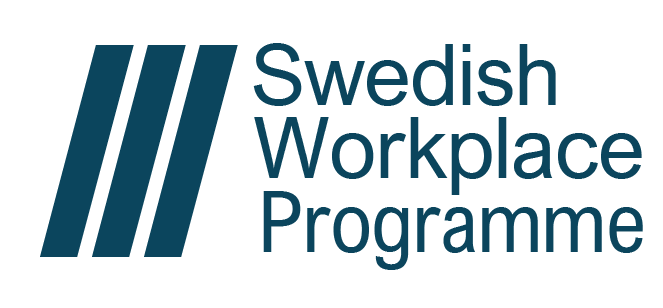

The Swedish Workplace Programme - What happens when labour-market actors work together to promote workplace co-operation?
The Swedish Workplace Programme (SWP) is a joint initiative composed of Swedish companies and trade unions that aims to promote effective workplace co-operation between workers and businesses as a tool to shape sustainable workplaces in emerging economies.
The programme is implemented jointly by the Global Deal partner Swedish Industrial and Metal Workers’ Union (IF Metall) and the International Council of Swedish Industry (NIR) with support from the Swedish International Development Cooperation Agency (Sida). Currently, the SWP works with 40 companies and unions in Colombia, Kenya, South Africa and Vietnam.
The SWP makes the business case for co-operation through the establishment of structured workplace committees (or 'programmes'). The process gives everyone a voice in the workplace and ensures policies align with local realities.

SKF Latin Trade is a company based in Colombia with presence in several other countries in Latin America and the Caribbean. The company is active in diverse sectors, including mining, oil and gas, and metal, where sustainability is an imperative. The outbreak of the COVID-19 pandemic forced SKF Latin Trade to adjust to new ways of working while meeting market demand and handling supply-chain disruption. The company decided to join the SWP programme to address the pandemic-related challenges through the enhancing of workplace co-operation.
The first crucial step of the SWP intervention model involves ensuring the local stakeholders’ buy-in. As such, the SWP facilitated a comprehensive baseline assessment that involved conversations, interviews and surveys with managers and workers. The assessment offered a different strategic view of the company and provided suggestions on where to prioritise efforts in the future.
Secondly, a workplace committee with representatives from management and employees was established through a transparent, democratic election process. Based on the assessment feedback, the workplace committee prioritised improvement in gender equality, diversity and inclusion, and sustainability.

For SKF Latin Trade, the committee is very important. Managing gaps, working on improvements with our staff and addressing sustainability is essential for the company.
The SWP delivered a training programme to build the capacity of committee members in organisational change and equip management and workers with the skills to navigate the change process. They also launched a Women Empowerment Programme, which included a review of policies that hinder equality at the company level.
- The SWP process of dialogue and consultation enabled management and workers to identify the company’s key sustainability challenges and design a plan to address them.
- SKF Latin Trade is now sharing this approach in their value chain through a platform that organises regular talks on guidelines and good practices, as well as through the rollout of a training programme.
- These measures and experiences have fostered an enabling environment for social dialogue as workers are now fully engaged where they weren’t before.
- Effective workplace co-operation practices have changed how policies are adopted and have contributed to mainstreaming human rights issues into all company initiatives.
Shop stewards are a trade union’s representatives in the workplace and act as a bridge between workers and the union. Most shop stewards surveyed during consultative meetings held by SWP in Kenya and South Africa indicated that union representatives were struggling to meaningfully engage with management due to lack of confidence and information. In addition, the COVID-19 pandemic accelerated the demand among shop stewards for soft skills such as relationship building and conflict resolution.
To fill this gap, the SWP and its Swedish company and trade union partners, together with the National Union of Metalworkers of South Africa (NUMSA) and the Amalgamated Union of Kenya Metal Workers (AUKMW), shaped UP! – a training initiative focusing on the upskilling of shop stewards in the metal and engineering sectors.
Union representatives from 27 companies in Kenya and South Africa were equipped through UP! and empowered with skills to engage with management in a new and effective way.
- Many shop stewards highlighted that, thanks to the training, they felt more empowered in their professional relations and on a personal level.
- The Federation of Kenyan Employers (FKA) noted that UP! has helped establish good approaches for conducting dialogue between workplace actors and for solving grievance issues early.
- Shop stewards listed several cases where they had secured results in dialogue with management, averted crises or found solutions based on the skills obtained during the training.
- The upskilling intervention successfully enhanced the unions’ value proposition, leading to an increase in membership in the AUKMW, as trained shop stewards used their newfound skills to recruit members.
- Furthermore, the training acted as a driver for the AUKMW to organise bipartite and tripartite conferences with the Kenyan Ministry of Labour, the FKA and the ILO.
Based on this shop steward upskilling, I feel confident that as a union, we now have change ambassadors that will grow the industry and protect and promote decent work principles for both the employer and the employees represented. And disputes will be dealt with at the workplace level through consultative dialogue.
Key Lessons
This case study illustrates the different actions that are necessary to effectively develop and promote workplace co-operation:
Ensure buy-in for workplace co-operation at the local level: The SWP works closely with its Swedish business and trade union members, particularly those in leadership roles, to showcase the value of high-trust relations at the factory level.
Make co-operation practical, localised and recurring: Permanent structures like committees and working groups, when reinforced by management and made legitimate through elections, provide a well-functioning, ongoing source of co-operation.
Include employees and workers’ representatives in companies’ policy processes from the start.
Read the full report
Download the Global Deal Flagship Report 2024 for the full version of this case study, plus 13 others examining the work carried out by Global Deal partners and the voluntary commitments made to promote social dialogue in addressing global-labour market challenges.